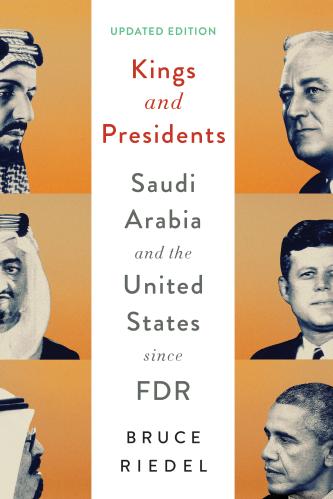Most Democratic energy in the House will, and should, go to disputes over budgets and the administration’s domestic priorities, writes Daniel Byman. However, problems related to counterterrorism and foreign policy should also be on the agenda. This post originally appeared on Lawfare.
 The power balance in Washington has shifted at least a little now that the Democrats have won the House. In addition to being able to pass legislation and shape the budget, Democrats now have the power to investigate, conduct hearings, and otherwise hold the executive branch accountable for the first time since the Senate flipped in 2014—and then, of course, a Democrat was in the White House. Most Democratic energy will, and should, go to disputes over budgets and the administration’s domestic priorities, as well as delving into accusations of administration corruption and the Russia investigation.
The power balance in Washington has shifted at least a little now that the Democrats have won the House. In addition to being able to pass legislation and shape the budget, Democrats now have the power to investigate, conduct hearings, and otherwise hold the executive branch accountable for the first time since the Senate flipped in 2014—and then, of course, a Democrat was in the White House. Most Democratic energy will, and should, go to disputes over budgets and the administration’s domestic priorities, as well as delving into accusations of administration corruption and the Russia investigation.
However, problems related to counterterrorism and foreign policy should also be on the agenda. Some of the problems are specific to the Trump administration, but others preceded it and never got the attention they deserve. In addition to using the budget and legislative powers, members of Congress can also draw attention to policy deficits, highlight problems and push for strategic clarity. Here are a few places to start:
1Right-wing terrorism in the United States. In the weeks before the election, a right-wing extremist mailed 14 package bombs to former President Barack Obama and other Democratic leaders, CNN, and others he deemed enemies of President Trump and the American people. In Pittsburgh, another right-wing extremist shot up a synagogue, killing 11 while shouting “Jews must die.” The Anti-Defamation League found a dramatic recent increase in anti-Semitic incidents and online harassment. Under Trump, right-wing extremists have been mainstreamed, with the president himself at times retweeting their propaganda, embracing their conspiracies, and otherwise welcoming them. In addition, the president cut programs designed to target right-wingers. One role for Congress is to ensure that the executive branch places higher priority on right-wing violence—and provides budgets accordingly. Congress should also highlight any ties that mainstream conservative groups and media outlets have to white supremacists, religious bigots, and others. Putting the glare of the public spotlight on these groups will hopefully make them more likely to reject the lunatic fringe as they did in the past. It may also discourage the White House from embracing fringe narratives, though that may be too reasonable an expectation.
2Internet policy. It’s hard to feel sorry for big technology companies, which often try to downplay issues related to extremism on their platform or promise that technology by itself can solve most of the problems, all while selling our data. Yet these companies are pushed by zealous regulators in places like Germany, while in the United States they are attacked for being biased against right-wing content. Congress so far has tried to have it both ways, blasting internet companies for not doing enough against terrorism and hate groups while not passing legislation that would establish rules all companies must heed. Internet companies need a clear set of guidelines—ones that will work in the jurisdictions of key U.S. democratic allies too—so they can consistently take down hateful content, work with law enforcement, and otherwise balance issues of free speech, privacy, and national security.
3Endless wars. Since 9/11, U.S. officials decided that no terrorism-related threat could go unaddressed. Under both Obama and Trump, the United States has gotten involved in civil wars and domestic insurgencies in the name of counterterrorism. U.S. forces are active in a whopping 76 countries scattered throughout the globe. When U.S. forces suffer casualties, as they did in Niger, members of Congress claim to be surprised. Congress needs to ensure that these creeping interventions are in the U.S. national interest and that government oversight is robust.
4Afghanistan and Libya. The civil war in Afghanistan is worsening, with mounting civilian casualties and government control of the country declining. Anarchy prevails in Libya, with the civil war continuing while peace talks founder. Both countries are good examples of where the United States has intervened (and in the case of Afghanistan, done so massively) but now policy is on autopilot even though no one thinks it is going in the right direction. Congress can highlight this dysfunction through hearings, use its budget power to condition funding on an actual strategy, and otherwise force senior administration officials to develop coherent policies.
5Yemen, the world’s worst humanitarian crisis, has gotten increasing attention since the Saudi government murder of journalist of Jamal Khashoggi spotlighted the Kingdom’s policy recklessness, including the disastrous war in Yemen. The United States can press two key allies, Saudi Arabia and the United Arab Emirates, to end their intervention. They depend on logistical support from the U.S. in particular, and if the United States ends its support these countries will find it extremely difficult to sustain their overt interventions. Congress might also try to diminish arms sales to the Kingdom in general and cut off those that might be used in Yemen. America, along with its allies, should also dramatically increase its humanitarian aid. Through hearings and its budget power, Congress can drive a change in U.S. policy.
Some of these problems, such as the mainstreaming of right-wing extremism, are particular to Trump. Others, such as confusion over policy ends in Libya and Yemen and a lack of guidance for Internet companies, spanned administrations, with problems often beginning under Obama, then continuing or getting worse under Trump.
A Democratic House, of course, is only one actor in the American foreign policy arena. The executive branch still dominates foreign policy, retaining most of the power and professional expertise. Moreover, both by tradition and authority, the Senate is endowed with more power on foreign policy than the House. So House leaders will need to work with their Senate counterparts, engage Cabinet members and senior civil servants, and otherwise understand that being a partner in foreign policy is the way to be most effective.
In today’s hyper-partisan environment, that will be exceptionally difficult. But in all these cases, a Democratic House can act like a policy grown-up rather than simply seeking to score points against the Trump administration. They can help decrease the risk of terrorism, limit the endless post-9/11 wars, and restore some coherence to U.S. Middle East policy. It’s a tall order, but it’s one worth striving for.
The Brookings Institution is committed to quality, independence, and impact.
We are supported by a diverse array of funders. In line with our values and policies, each Brookings publication represents the sole views of its author(s).









Commentary
How a Democratic Congress might improve counterterrorism and Middle East policy
November 7, 2018